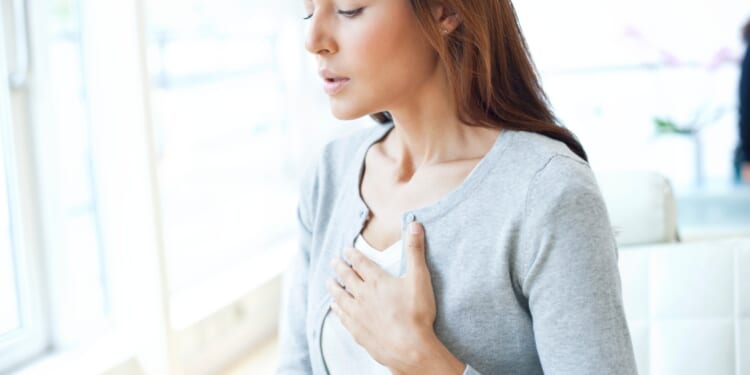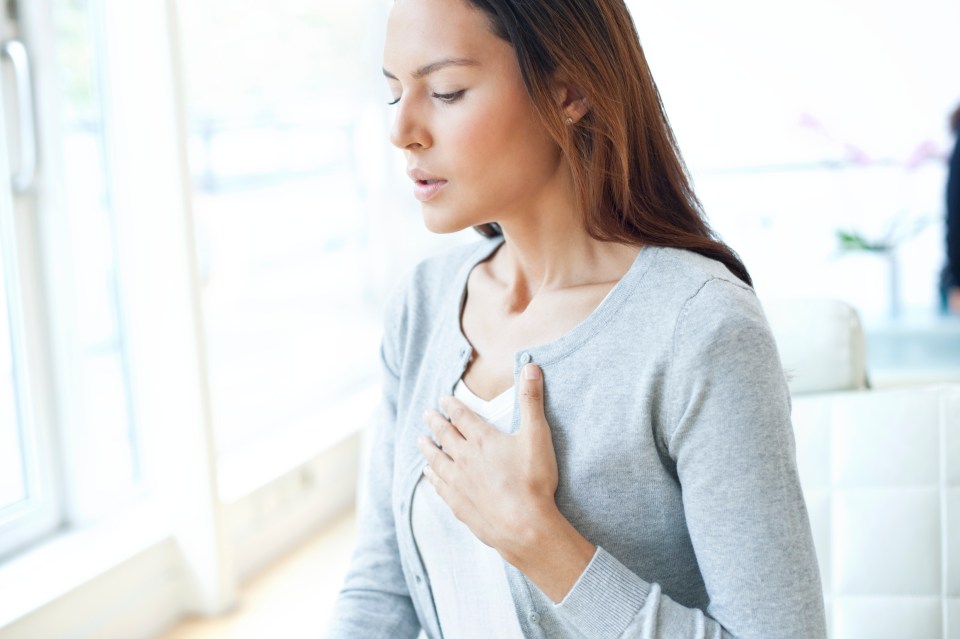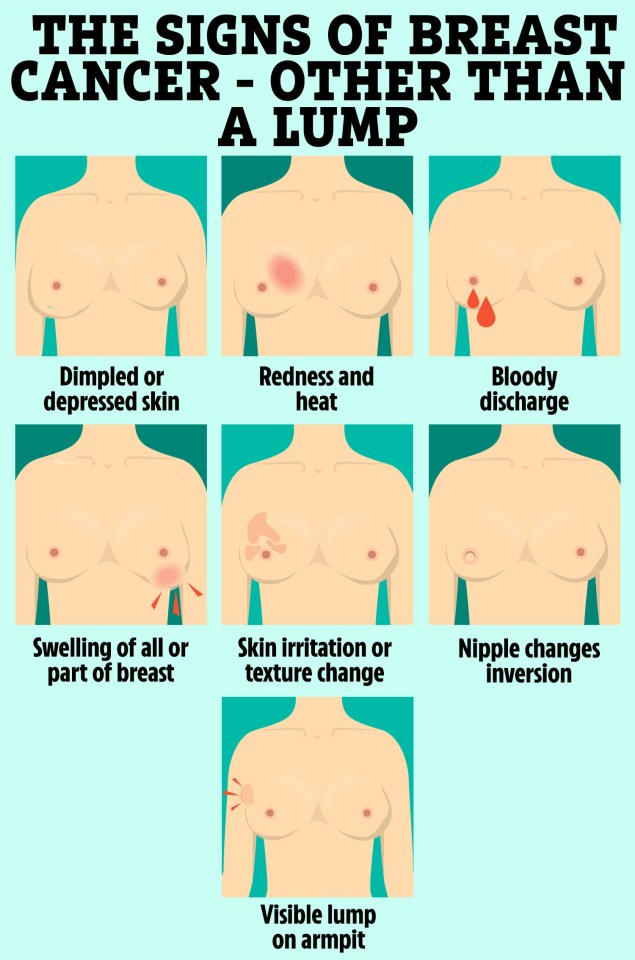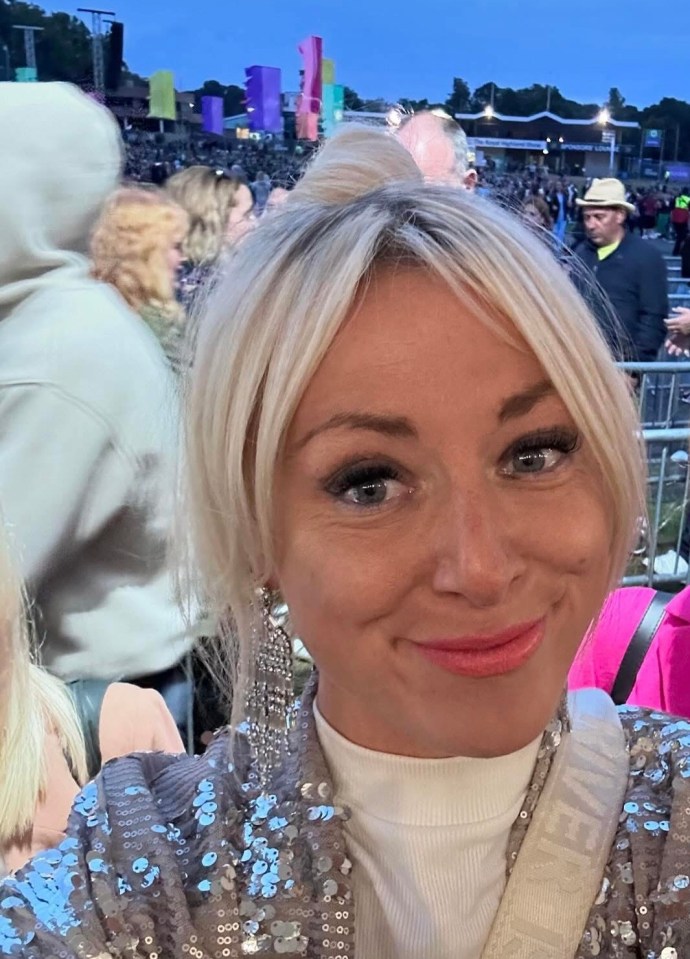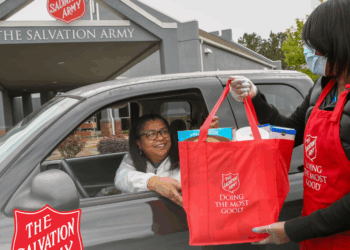BEING familiar with what is normal for your own body is important for detecting potential signs of cancer early.
But almost half (45 per cent) if women in the UK aren’t regularly checking their breasts for potential signs of cancer, a new poll suggests.
Charity Breast Cancer Now said the finding is a “serious cause for concern” given that early detection of the disease gives patients a better chance of successful treatment.
It added around two thirds of breast cancers in England are detected when women notice a breast change and get it checked by a GP.
And it’s concerned fewer women are regularly checking their breasts for changes, after a poll in 2022 showed 41 per cent weren’t checking their breast regularly.
In the latest poll, 11 per cent of women surveyed said they have never checked their breasts.
Read more on breast cancer
The survey of 2,283 UK women found there are multiple barriers which prevent regular checks including forgetting to check; not being in the habit of checking; a lack of confidence in how to check their breasts and not knowing how to check breasts.
Of the women who check their breasts for possible signs and symptoms of breast cancer, 32 per cent said they do not feel confident that they would notice a breast change, according to a YouGov poll.
Manveet Basra, associate director of public health, inclusion and awareness at Breast Cancer Now, said: “That the number of women in the UK still not regularly checking their breasts is at a four-year low is deeply concerning given the sooner breast cancer is diagnosed, the better the chances of treatment being successful, and lives potentially being saved.
“More must be done to ensure women both know the possible signs and symptoms of breast cancer and the importance of establishing this vital health check as part of their routine.
“Our new ‘Checklist’ campaign, launching this Breast Cancer Awareness Month, aims to tackle this health challenge head on, ensuring women put regular breast checking at the top of their to-do list.”
She added: “Breast checking only takes a few minutes and there’s no right way to do it, as long as it’s done regularly.”
Approximately 11,500 women die from breast cancer in the UK each year, with around 32 deaths per day.
Although mortality rates have been declining, it remains the second more common cause of cancer death in women.
The most recognised symptom of breast cancer is a new lump.
Not all breast lumps point to cancer, but a cancerous lump is often described as feeling painless, hard, and has irregular, non-smooth edges – although it can sometimes feel soft or rounded.
How to check your breasts
It is important to regularly check your breasts for any changes. Breast tissue reaches all the way up to your collarbone and across to your armpit, so it’s vital to check these areas too.
If you feel or see any changes in your breast you should always consult your GP.
Charity CoppaFeel! recommends checking your breasts monthly, so you can pick up on any changes quickly.
Breasts do change naturally as part of your monthly menstrual cycle, so you should get to know your breasts, how they feel and what changes they usually go through to know if anything is out of the ordinary.
Five-step check
There is a five-step self exam you can do at home to check for any changes.
Step one: Begin by looking in a mirror, facing it with your arms on your hips and your shoulders straight. You should be looking for any dimpling, puckering, bulging skin, redness, soreness, a rash or changes in the nipple.
Step two: Still looking in the mirror, raise both arms above your head and check for the same changes.
Step three: With your arms still above your head, check for any fluid coming from the nipples. This can include milky, yellow or watery fluid, or blood.
Step four: While lying down use your opposite hand to check each breast. Using a few fingers, keeping them flat and together, go in a small circular motion around your breasts. Make sure you feel the entire breast by going top to bottom in these small circles. It helps to develop a system or pattern to make sure every inch is covered. Use light pressure for the skin and tissue just beneath, medium pressure for the tissue in the middle of your breasts, and firm pressure to feel the tissue at the back, feeling down to your ribcage.
Step five: Feel your breasts while either standing or sitting, using the same small circular motions.
It may also be fixed, meaning it doesn’t move easily.
But according to Prevent Breast Cancer there are other signs to be aware of – with one symptom not appearing on the actual breast.
The UK-based charity says looking at yourself in the mirror may help to check whether you can see any of the following signs and symptoms…
Breast Cancer Now said that on its own, pain in the breasts is not usually a sign of breast cancer, but it said women should look out for pain in their breast or armpit that is there all or almost all the time.
Alongside regularly checking your breasts, anyone registered with a GP as a female will be invited for NHS breast screening every three years between the ages of 50 and 71.
At a screening appointment, a female mammographer will take two X-rays, called mammograms, of each breast after it’s compressed by a machine.
It typically lasts no longer than 30 minutes and aims to detect breast cancer early.
Results are received by post usually within three weeks.
‘I WAS SHOWN HOW PRECIOUS LIFE IS’
Carmen Lorimer, 40, from West Lothian, Scotland, was diagnosed with breast cancer in 2023 after discovering a lump in her breast.
She said: “I wasn’t in the habit of regularly checking my breasts, but I noticed a lump when I was in the shower one day.
“When the consultant told me that it was stage one breast cancer, I was relieved beyond belief. I didn’t care what treatment or surgery was needed, I just needed to hear they could save me.”
The mother-of-two had a lumpectomy and had lymph nodes removed.
She also had a course of radiotherapy and tamoxifen.
She added: “When you get a scare that it could all be taken away from you so prematurely it really is an eye opener and shows you how precious life is.
“I will always be grateful to my medical team for quite literally saving my life and now my boys will have their mum.
“Finding breast cancer early is crucial, so I want to encourage people to check their breasts regularly and know the signs and symptoms to look out for.”

